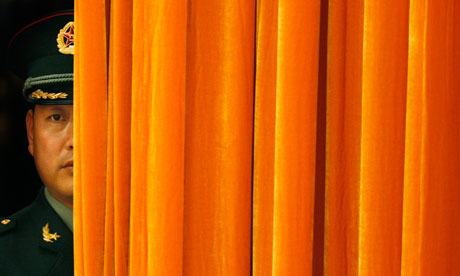維基解密最新網址:
http://213.251.145.96/
伊万豆夫 发表于 2010-12-3 07:50 PM

 An honour guard at a Beijing ceremony for North Korean leader Kim Jong-il. US embassy cables reveal the lack of a clearly agreed US-China policy on Pyongyang. Photograph: Alfred Cheng Jin/Reuters China's willingness to accept Korean reunification, revealed in private conversations between senior Communist party officials and US and South Korean diplomats, reflects Beijing's deep, previously concealed exasperation with its wayward ally North Korea.
An honour guard at a Beijing ceremony for North Korean leader Kim Jong-il. US embassy cables reveal the lack of a clearly agreed US-China policy on Pyongyang. Photograph: Alfred Cheng Jin/Reuters China's willingness to accept Korean reunification, revealed in private conversations between senior Communist party officials and US and South Korean diplomats, reflects Beijing's deep, previously concealed exasperation with its wayward ally North Korea.

維基解密最新網址:
http://213.251.145.96/
伊万豆夫 发表于 2010-12-3 07:50 PM
| 欢迎光临 〖嘉城社区网〗 (http://162.218.51.55/) | Powered by Discuz! 7.0.0 |